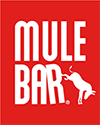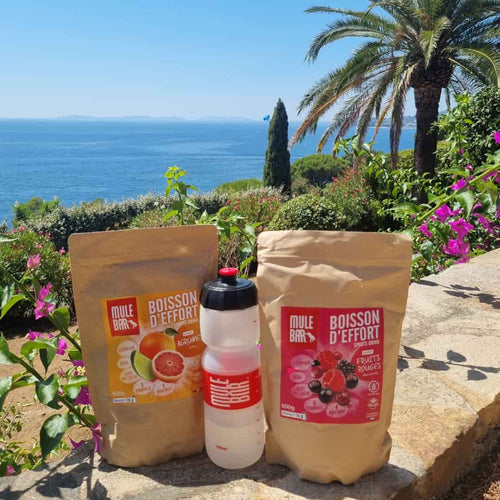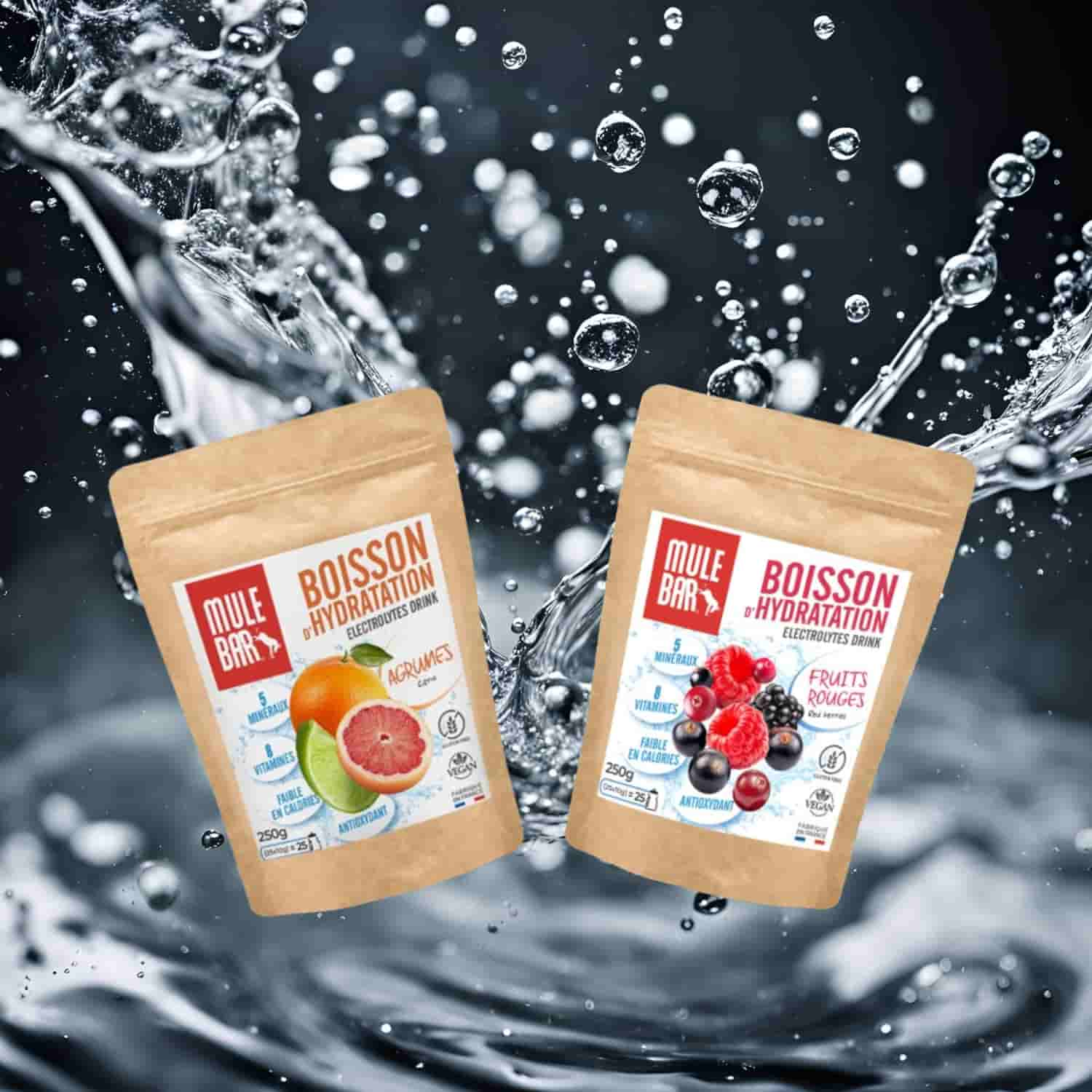Nordic walking is an increasingly popular physical activity, combining the benefits of walking with the use of specific poles. Born in Finland in the 1930s, it was initially a summer training method for cross-country skiers. Today, this discipline appeals to a wide audience thanks to its multiple benefits: a complete body workout, accessible to all, and a direct connection with nature.
However, like any sporting activity, Nordic walking requires special attention to nutrition and hydration. In this article, we will explore the specific needs of Nordic walking practitioners, the importance of sports nutrition and how a brand like Mulebar , with its adapted products, can meet the expectations of these athletes.
What is Nordic walking?
Nordic walking differs from traditional walking by the use of poles that accompany each step. Unlike hiking, where poles are mainly used to reduce the strain on the legs, Nordic walking actively engages the upper body. This activity is dynamic, fluid and complete, mobilizing up to 80% of the body's muscles. Not to be confused with race walking, an Olympic discipline until the Tokyo Games in 2020, which consists of walking as fast as possible, between 10 and 50 km, while keeping one foot in contact with the ground at all times.
What muscle groups are used in Nordic walking?
According to Yannick Syre, a French Nordic walking coach, it is a balanced sport that promotes harmonious muscle development without being traumatic for the joints like running. Thanks to the movement of the poles, the muscles of the arms, shoulders, back and abdominals work in synergy with the muscles of the legs, hips and glutes. According to him, it is recommended to practice Nordic walking both on the flat and on uneven ground and this until quite advanced ages.
What is the average calorie expenditure in Nordic walking?
Nordic walking is more demanding than classic walking because it increases caloric expenditure by 20 to 40% depending on the intensity of the practice. A moderate 1-hour session burns between 400 and 600 calories . This significant caloric expenditure requires an appropriate energy intake before, during and after the effort to maintain performance and avoid fatigue.
The specific needs of Nordic walkers: nutrition and hydration
Before exercise: prepare your body
To fully enjoy a Nordic walking session, it is crucial to stock up on energy . This involves a balanced meal or a snack rich in complex carbohydrates a few hours before the effort. These carbohydrates provide lasting energy and prevent a sudden drop in blood sugar levels.
Pre-workout snack ideas:
- A banana and a handful of almonds.
- An energy bar rich in natural, easy-to-digest carbohydrates.
During exercise: maintain energy and hydration
During a prolonged session (more than 90 minutes), energy reserves, glycogen, are gradually depleted. The goal is to prevent muscle fatigue and dehydration by:
- Fast carbohydrates to fuel muscles.
- Regular hydration , essential to compensate for water and mineral salt losses due to perspiration.
An energy compote is an ideal source of fast carbohydrates. Their practical format makes them easy to consume while walking.
For hydration, isotonic drinks enriched with electrolytes promote optimal absorption and prevent cramps.
After exercise: recover effectively
Recovery is essential to prevent muscle soreness, restore glycogen stores and repair muscle fibers. A combination of protein and carbohydrates within 30 minutes of exercise is recommended.
Example of a post-workout snack:
- A protein shake with an energy bar.
- A recovery drink that combines electrolytes and carbohydrates for maximum benefits.
Why is good nutrition crucial in Nordic walking?
Maintaining performance
A suitable diet helps maintain a constant energy level throughout the session, avoiding energy dips. Without sufficient energy intake, the muscles draw on their reserves, leading to rapid fatigue.
Avoid dehydration
Even though it is practiced outdoors and in all weathers, Nordic walking can lead to significant sweating, especially in summer or during demanding routes. Dehydration directly impacts performance: a water loss of just 1% of body weight can reduce physical capacity by 10%.
Optimize recovery
Proper post-workout nutrition helps muscles regenerate quickly, reducing muscle soreness and allowing you to resume training in good conditions.
Mulebar: an ideal solution for Nordic walking enthusiasts
The sports nutrition brand Mulebar offers a range of 100% natural products perfectly adapted to the needs of athletes, including Nordic walkers. With natural ingredients, optimal digestibility and a reduced environmental impact, their products meet the expectations of sports and nature lovers.
Mulebar energy bars
- Rich in natural carbohydrates from fruits, seeds and grains.
- A pleasant, non-sticky, soft texture, ideal for consumption during exercise.
- Varied and delicious flavors: apple cinnamon, apricot pecan, mango cashew, lemon-ginger…etc, the energy bars will take you on a journey to the ends of the earth during your walk.
Mulebar energy compotes
- Tasty recipes and a fluid texture, easy to absorb
- Energy compotes contain fast and slow sugars for immediate energy that will last over time.
- Strong, resealable packaging for multiple consumption.
Isotonic drinks for exercise and hydration
- Balanced in electrolytes to compensate for mineral losses.
- Pleasant red fruit or citrus flavors, low in sugar and natural, which facilitate regular hydration.
- Ideal for preventing cramps and promoting rapid recovery.
Example of a typical day for a Nordic walking practitioner
Morning: Breakfast rich in complex carbohydrates (oatmeal, fruit, plain yogurt).
Before exercise: An energy bar 30 minutes before the session.
During exercise: An energy compote and small sips of an isotonic drink every 20 minutes.
After exercise: A recovery drink and a protein snack within 30 minutes of walking.
Nordic walking is a demanding discipline that mobilizes the entire body and requires particular attention to nutrition and hydration. Adapted products such as those from Mulebar allow practitioners to effectively meet their energy needs while respecting their health and the environment.
By incorporating these good nutritional habits, Nordic walkers can take full advantage of their sessions, improve their performance and recover more quickly.






Leave a comment
This site is protected by hCaptcha and the hCaptcha Privacy Policy and Terms of Service apply.